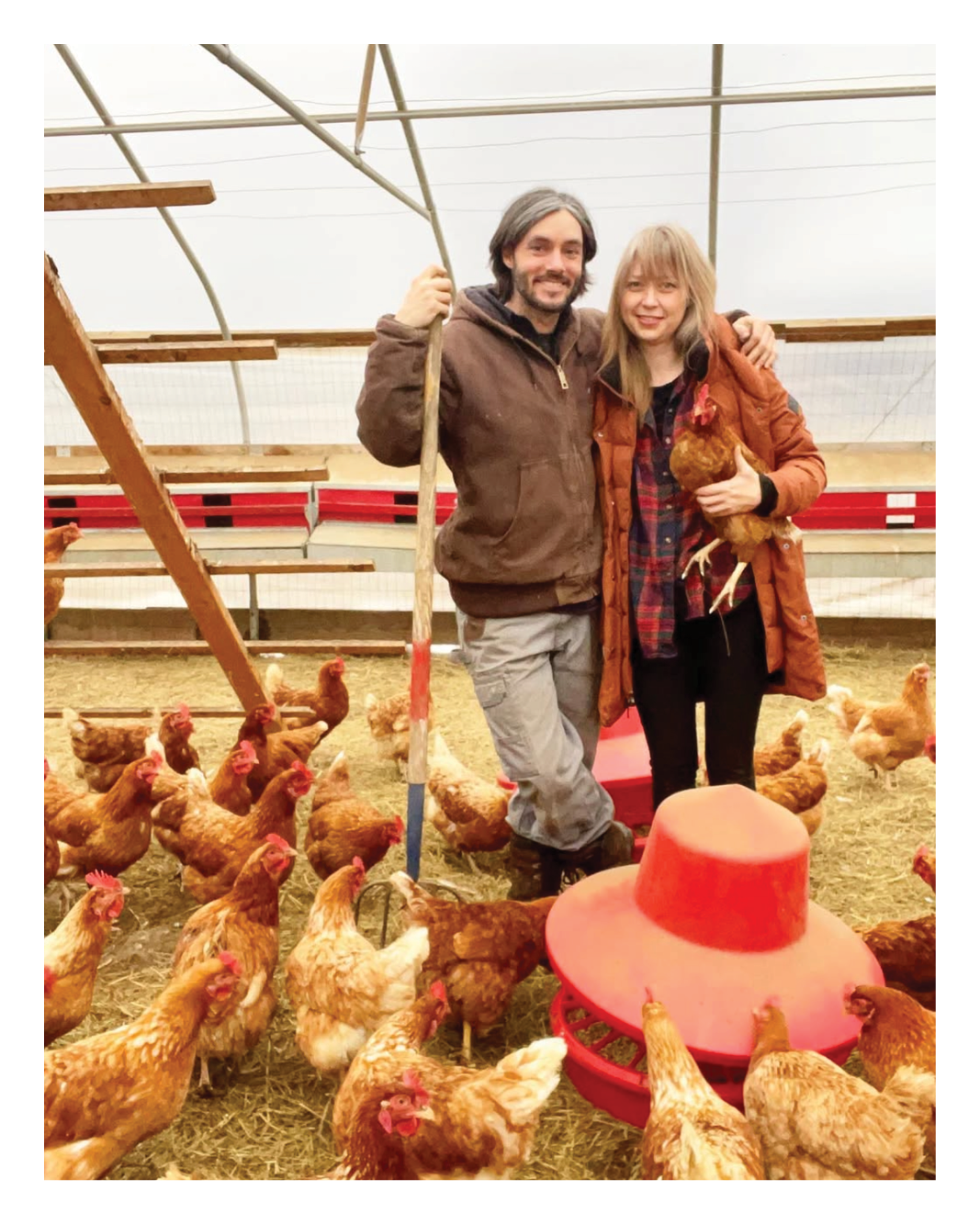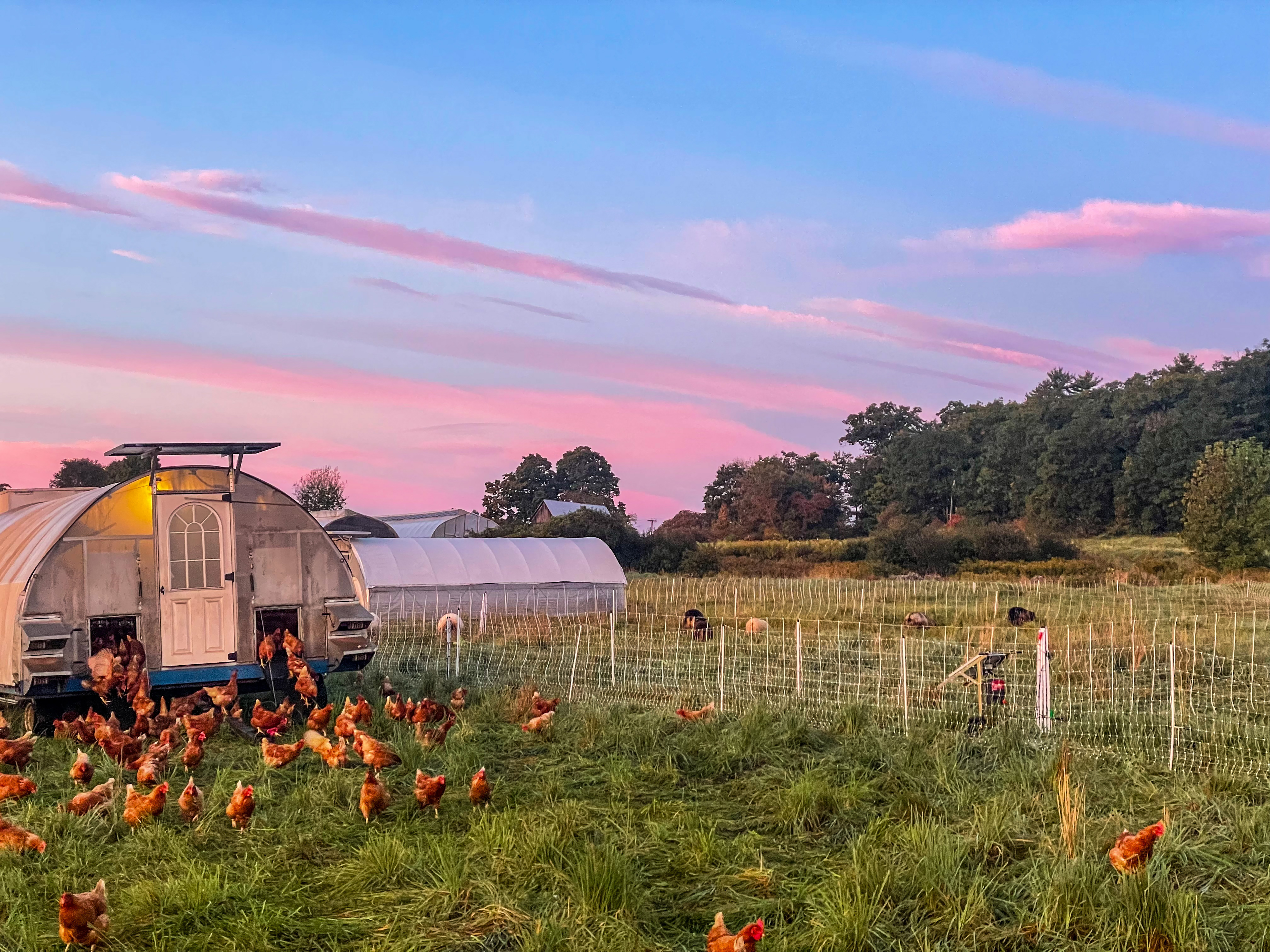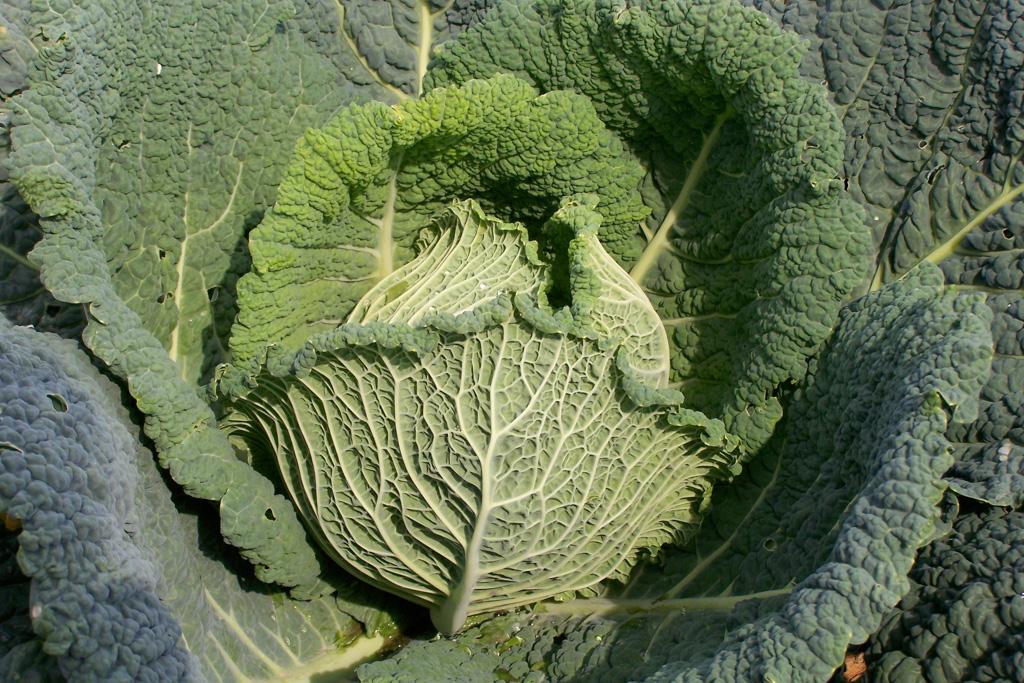December 19, 2024
Our names are Justin and Vanessa and we’re the co-owners of Leaping Bear Farm, an organic, pasture-raised diverse farm in Putney, Vermont—a community we care deeply about. We’ll be moving into our 7th growing season in 2025, and we are immensely proud of the work we do.
We make choices that align with our values. As legislators prepare for the upcoming General Assembly, we ask that they, too, make choices that align with what we value here in Vermont.
 Everybody in our community benefits from our tended land. We raise incredibly wholesome and nourishing chicken for our community. We are also able to sequester meaningful amounts of carbon in our soils, helping to make them more resilient to the increased flooding and droughts that are becoming increasingly prevalent in Vermont’s changing climate. Our dedication to healthy, carbon-rich soils is one of the reasons we became Certified Real Organic—an add-on to organic certification that guarantees the food is grown in soil (instead of hydroponically) and animals are raised on pasture. We also know that by bringing our food down the road to the local farmers market, we are reducing our communities' need for gas-consuming trucks that haul food across the country and the globe. This actively strengthens our food system and our connections to each other.
Everybody in our community benefits from our tended land. We raise incredibly wholesome and nourishing chicken for our community. We are also able to sequester meaningful amounts of carbon in our soils, helping to make them more resilient to the increased flooding and droughts that are becoming increasingly prevalent in Vermont’s changing climate. Our dedication to healthy, carbon-rich soils is one of the reasons we became Certified Real Organic—an add-on to organic certification that guarantees the food is grown in soil (instead of hydroponically) and animals are raised on pasture. We also know that by bringing our food down the road to the local farmers market, we are reducing our communities' need for gas-consuming trucks that haul food across the country and the globe. This actively strengthens our food system and our connections to each other.
Farming is very hard, but it is meaningful to us. Our role in local food production is how we live out our care of the earth and our care of Vermonters. We’re not unique in our dedication to responsible food production here, and that’s one of the things that makes Vermont special. Many of the farmers we work alongside approach their work with the same values, and Vermont is full of people who choose to eat local food as much as they can. We want wholesome, nourishing food, and healthy, resilient communities, and we see that small-scale farms are necessary to that shared vision.
On our farm, we try hard to minimize waste. We learned to make bone broth out of the backs and necks left after our chickens are parted up. We receive so much positive feedback about this bone broth, from people telling us how often they use it to cook with and how healthy it makes them feel, to customers with severe health issues that emphatically tell us they think our broth is actually keeping them alive. Our Certified Real Organic, pasture-raised chicken products are the highest quality poultry and eggs available on the market. As farmers, it’s important to us that protein-rich foods like these remain accessible to all Vermonters regardless of income; we know the impact it makes on their health and diets.
The truth is, we’re moving into a future that feels uncertain. We’re concerned about the systems that we’ve depended on, and about the power that corporations seem to be gaining over what we eat, think, and do. We’re concerned about climate change, as farmers and as people. We’re concerned about our neighbors and our kids. And like most of us, we’re concerned about the cost of living and access to clean, healthy, nutritious foods.
Whatever this future holds, we’re going to need to be resilient in this world we’ve created. We need to shore up our local food systems and our access to good fresh food. We need to maximize our ability to sequester carbon and mitigate climate change. We need to invest in making our communities healthy, whole, and secure.
Vermont is the place to start. Our local farms are at the center of the solutions that we need. When we face a challenge on our farm–like wanting to use less plastic or needing to tend more land–we focus on what we *can* do. We get scrappy and creative because the only thing we can control is what we do right here. And so far, grounding ourselves in our purpose and our values has helped us face each of those challenges.
As Vermont’s lawmakers come together to make choices about our state’s way forward, we ask them to do the same: Work from our shared values of care for the earth and care for community and invest in our health and well-being. Know that small-scale local farms are at the heart of Vermont’s resiliency. We take that responsibility very seriously, and in the face of this changing climate, we will need the support of our lawmakers. They can choose to keep our communities fed and our local economies humming by making our small-scale local farms more resilient, especially in the face of climate crises. They can choose to support our access to nourishing food grown right here, not in some corporate lab or far-off ecosystem. They can make sure that Vermont continues to be the place where we try the hardest.


